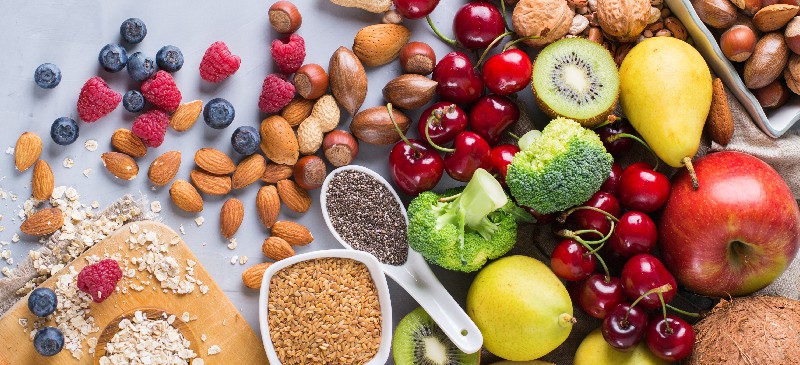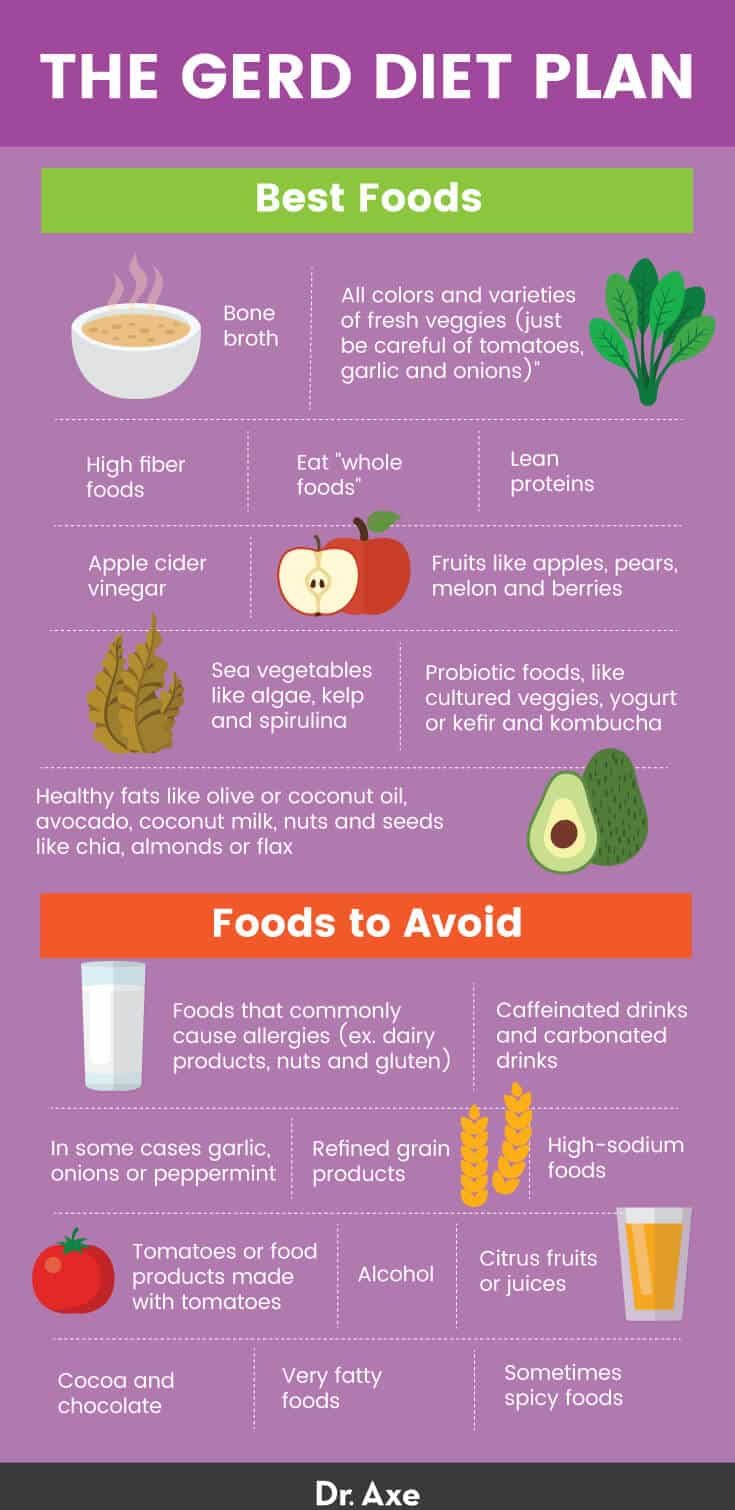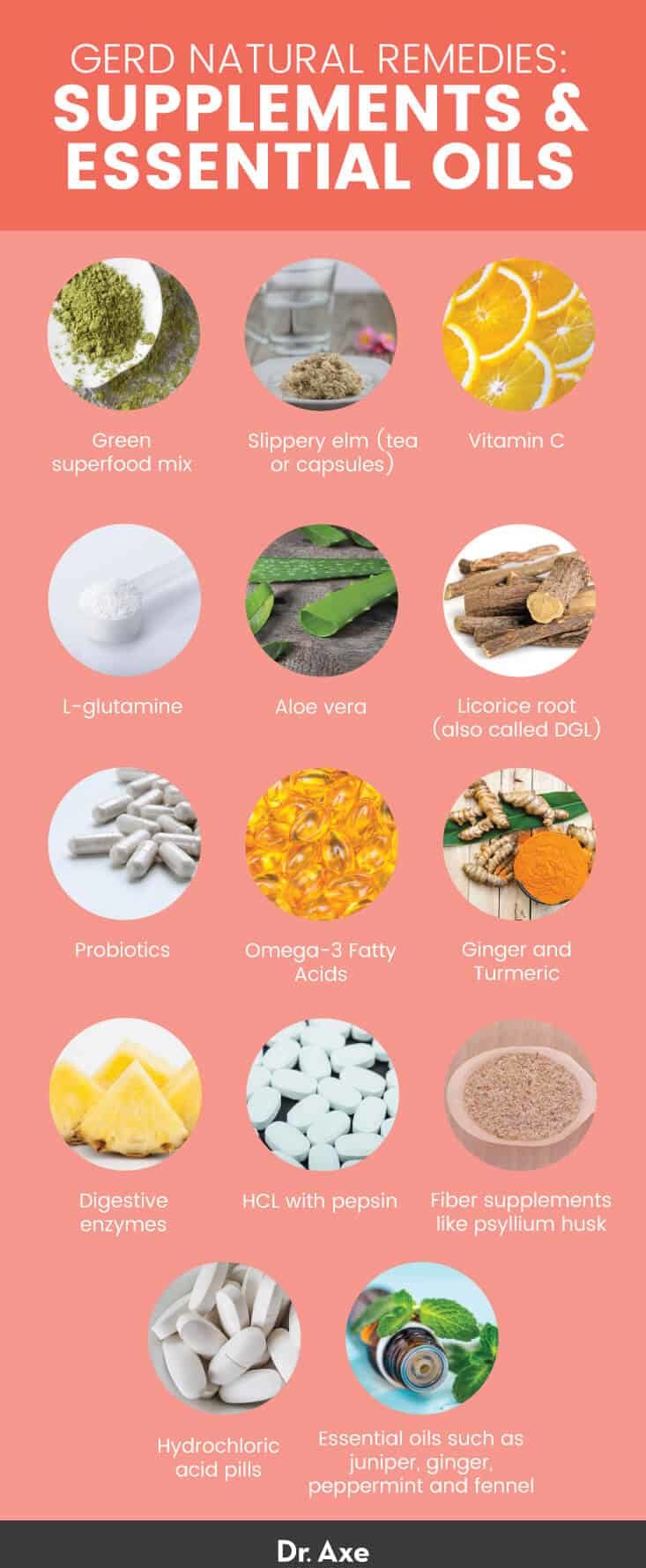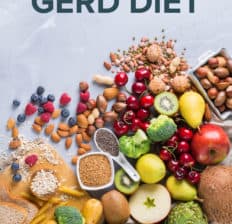This Dr. Axe content is medically reviewed or fact checked to ensure factually accurate information.
With strict editorial sourcing guidelines, we only link to academic research institutions, reputable media sites and, when research is available, medically peer-reviewed studies. Note that the numbers in parentheses (1, 2, etc.) are clickable links to these studies.
The information in our articles is NOT intended to replace a one-on-one relationship with a qualified health care professional and is not intended as medical advice.
This article is based on scientific evidence, written by experts and fact checked by our trained editorial staff. Note that the numbers in parentheses (1, 2, etc.) are clickable links to medically peer-reviewed studies.
Our team includes licensed nutritionists and dietitians, certified health education specialists, as well as certified strength and conditioning specialists, personal trainers and corrective exercise specialists. Our team aims to be not only thorough with its research, but also objective and unbiased.
The information in our articles is NOT intended to replace a one-on-one relationship with a qualified health care professional and is not intended as medical advice.
GERD Diet Plan: Best & Worst Foods + Natural Remedies
May 10, 2023

Gastroesophageal reflux disease (GERD) causes daily persistent heartburn, also called acid reflux, in nearly one in five American adults. This chronic condition, caused by inflammation and dysfunctions of the stomach, leads to tissue damage that erodes the esophagus. The good news is following a GERD diet can help treat GERD symptoms, along with lifestyle changes.
Why might someone develop GERD or acid reflux? A large body of research shows that root causes of GERD and risk factors include:
- obesity
- untreated food allergies
- leaky gut syndrome
- smoking
- high stress levels
- poor circulation
Because of all the risks associated with long-term use of GERD and acid reflux/heartburn medications, many people choose to successfully treat GERD naturally. They make lifestyle changes and switch to a healthier diet.
Eating a GERD diet — which includes cutting out various processed foods, alcohol and caffeine and is very similar to an acid reflux diet — is the very first place to turn your attention toward when tackling this painful condition.
GERD Diet: Foods to Eat
Whether or not you choose to use medications for your symptoms, be sure to first try treating the real root causes of acid reflux and GERD, especially high levels of inflammation, in order to keep symptoms from returning over and over again. Following a GERD diet is one way to do that.
What does following a GERD diet look like? The first step is avoiding “common culprit” foods that can cause reactions due to sensitivities, packaged foods that contain synthetic ingredients and foods stripped of their natural nutrients.
In their place, adopt a GERD diet rich in inflammation-quelling foods that help protect the digestive system and reduce complications.
Try to choose foods that are low in added ingredients (read labels or consume “whole foods”), grass-fed, organic, and free from chemical pesticides or herbicides. In general, a plant-based diet that includes lots of antioxidants, anti-inflammatory compounds, water and fiber may help you heal faster.
These are important for controlling free radical damage, sustaining healthy bacteria in the microbiome, limiting nutrient deficiencies, and keeping cholesterol and blood pressure under control.
Keep an eye on the amount of animal products you consume (dairy, meat, processed cold cuts, eggs, cheese, etc.) on a GERD diet. Animal products tend to be more difficult for people with GERD to digest properly.
What foods should you eat on a GERD diet? Here are some of the best to consume:
- All colors and varieties of fresh veggies, especially artichoke, leafy greens, carrots, squash, sweet potatoes, asparagus, green beans, peas, cucumber and fennel. (Just be careful of tomatoes, garlic and onions.)
- High-fiber foods, including veggies, fruits, beans, whole grains, nuts and seeds.
- Lean proteins (opt for cuts that are lower in fat if this helps reduce symptoms). Look for grass-fed lean meats, pasture-raised poultry, wild fish, soaked beans (if you can tolerate them) and yogurt.
- Bone broth, which supplies amino acids, many minerals and electrolytes, antioxidants, and collagen to help heal the gastrointestinal tract.
- Fruits like apples, pears, melon and berries. Monitor your symptoms since sometimes fruits like citrus and tomatoes can worsen pains.
- Apple cider vinegar, a fermented product that many find helps balances stomach acid.
- Sea vegetables like algae, kelp and spirulina. These may help regulate production of stomach acid.
- Healthy fats like olive or coconut oil, avocado, coconut milk, and nuts and seeds, like chia, almonds or flax.
- Probiotic foods, like cultured veggies, yogurt or kefir and kombucha.

Foods to Avoid
- Foods that commonly cause allergies, intolerances or sensitivities: Processed dairy products (raw or fermented dairy may be well-tolerated), grains and/or food products containing gluten, sometimes eggs or nuts, and synthetic ingredients found in processed foods.
- Caffeinated drinks and carbonated drinks: These are often sweetened and also contain air, which can make belching or gas pains associated with GERD worse. Some people also feel worsened symptoms after consuming egg whites or whipped cream, which can trap air inside the GI tract.
- Alcohol: Depending on your specific reaction, beer, wine and liquor may all contribute to symptoms, especially when consumed close to bedtime.
- Cocoa and chocolate
- High-sodium foods
- Very fatty foods, such as fast foods, cheese, processed meats and fried foods
- Refined grain products, including packaged snacks like cookies, chips, cereal bars, etc.
- Sometimes spicy foods, such as those made with cayenne, cinnamon, chili pepper, hot sauce, etc.
- Citrus fruits or juices
- Tomatoes or food products made with tomatoes
- In some cases garlic, onions or peppermint
GERD Diet Lifestyle Tips
1. Eat Smaller Meals and Slow Down!
Try to spread meals throughout the day, rather than eating one to three larger meals. Slow down when you drink or eat, being sure to eat mindfully and chew your food thoroughly before swallowing. This will also help you avoid overeating, which can trigger release of more stomach acid.
Sit down when eating, and try to relax the digestive system. When drinking beverages, try not to gulp or use a straw, which can trap more gas inside the stomach. For the same reason, between meals try not to chew gum, smoke or use straws.
2. Don’t Eat Close to Bedtime
Try to give yourself at least several hours between finishing your last meal of the day and going to sleep for the night. Lying down soon after eating or bending over, such as to exercise before bed, can worsen GERD symptoms for many people.
It’s best to consume a small dinner about three hours before bed, and then relax in order to ease digestion.
3. Increase Your Water Intake
Many find that this helps lower GERD symptoms and improve digestion overall, especially when water replaces too much caffeine, sugary drinks or alcohol.
4. Avoid Tight-fitting Clothing
Wearing tight clothes after eating can put pressure on your abdomen and cause pain in digestive system. Try to wear comfortable pants that allow you to move and sit easily.
5. Manage Stress and Get Enough Rest
Stress can greatly interfere with digestion by changing production of hormones, leading someone to turn to smoking or alcohol, interfering with sleep, and more. Find ways to get a better handle on stress.
Try changing your routine in order to feel more relaxed. Massages or self-massaging, exercising, meditating, acupuncture, using anti-anxiety essential oils, and getting more rest can all help.
You also might try speaking with a therapist to get to the root of your problems.
6. Quit Smoking and Be Careful About Alcohol Consumption
Smokers have a significantly higher risk for developing GERD and other inflammatory conditions compared to non-smokers, and many people with GERD find that even small amounts of alcohol can trigger symptoms. Alcohol can dehydrate the digestive system, increase stress and inflammation, contribute to weight gain, and worsen symptoms like gas, bloating, nausea and difficulty sleeping.
7. Get Regular Exercise
GERD is more common among those who live a sedentary lifestyle. This is especially true if they are also overweight and consume a poor, nutrient-deficient diet.
There are many reasons to exercise when it comes to improving digestive health, including:
- improving circulation
- lowering inflammation
- help with managing stress
- controlling your weight
- strengthening the cardiovascular system
- improving sleep quality
- more
8. Reach and Maintain a Healthy Weight
Research suggests there’s a link between obesity and GERD. If you’re overweight, work on making lifestyle changes.
For example, switch your diet to one with an emphasis on whole foods and getting more exercise. Limiting stress and balancing hormones are other ways are also healthy changes.
9. Raise the Head of Your Bed
Keep your head elevated about six to 12 inches up when sleeping to see if this helps stop acid reflux.
10. Talk to Your Doctor About Your Medications
You may benefit from stopping use of certain medications, such as NSAIDs if taken in high amounts or hormone replacement drugs. Speak with your doctor about whether any medications or even over-the-counter drugs might be making your symptoms worse. Also, discuss options about what to do instead.
Other GERD Natural Remedies
- Green superfood mix. Helps detox the body and supply nutrients like fiber and magnesium.
- Slippery elm (tea or capsules). Studies show slippery elm may help treat many different digestive complaints by soothing the lining of the GI tract.
- Vitamin C. Supports strong immunity and acts like an antioxidant.
- L-glutamine. Studies suggest this amino acid is helpful for regulating acid production, and many find it soothes various forms of indigestion. I recommend taking five grams of glutamine powder twice per day with meals.
- Aloe vera. Soothes and lubricates the digestive system.
- Licorice root (also called DGL). May help form a protective coating that limits damage to the stomach and esophagus. Probiotics. Supply healthy bacteria that aid in healing the digestive and immune systems.
- Omega-3 fatty acids. Fight inflammation, yet lacking in many people’s diet.
- Ginger and turmeric. Both are anti-inflammatory herbs used to treat many digestive symptoms tied to inflammation.
- Digestive enzymes. These can help you fully digest foods, better absorb nutrients and prevent acid buildup. Try taking one or two capsules of a high-quality digestive enzyme at the start of each meal until symptoms dissipate.
- HCL with pepsin. Some find this useful for keeping uncomfortable symptoms at bay. Try taking one 650-milligram pill prior to each meal.
- Fiber supplements like psyllium husk. If you have trouble going to the bathroom or other digestive issues, more fiber may help relieve pressure.
- Hydrochloric acid pills. One of the most popular ways to treat acid reflux and GERD is to regulate acid production through use of hydrochloric acid. However, this will depend on what’s causing your symptoms (low versus high acid production, inflammation, etc.). Track your symptoms, or consider asking your doctor for advice.
- Essential oils. Research shows juniper berry essential oil contains more than 87 different active constituent compounds. These compounds include strong antioxidants, antibacterials and antifungals that can help heal the digestive system. Other beneficial oils for digestion include ginger, peppermint and fennel oil. First dilute these oils with a carrier oil like coconut oil in a 1:1 ratio before applying them directly to your abdomen and chest. Other ways to use them include inhaling or diffusing oils in your home.

What Is GERD?
Gastroesophageal reflux disease is defined as symptoms or mucosal damage produced by the abnormal reflux of gastric contents into the esophagus, or beyond into the oral cavity (including the larynx) or the lungs.
GERD-related symptoms are experienced by around 10 percent to 20 percent of the total adult population daily, and a much higher percentage battles some form of acid reflux symptoms at least monthly. If GERD is left unresolved, it can lead to serious health problems down the road— including Barrett’s esophagus, an increased risk of esophageal cancer, ulcers in the esophagus and more.
Many think that GERD is the same thing as heartburn or acid reflux. However, rather than simply a byproduct of prolonged acid reflux, there’s now evidence that GERD is tied to rising inflammation levels.
This inflammation usually stems from poor gut health. It can trigger the immune system to attack the body’s own tissue.
In other words, it seems true that untreated acid reflux can contribute to GERD as it progresses and causes damage to the esophagus. However, other lifestyle and dietary factors also seem to come into play.
Common Gerd Symptoms, Causes and Risk Factors
Signs and symptoms of GERD usually include:
- Chest pains, including painful burning sensations (“heartburn“) in the throat or chest
- Sometimes wheezing, symptoms of asthma, chronic coughing and difficulty breathing
- Trouble swallowing or eating normally
- A sour taste in the mouth
- Bloating and belching, a symptom caused by gas becoming trapped in the upper part of the digestive tract
- Excessively salivating
- Tooth erosion
- Sometimes complications such as esophageal damage and severe tissue scarring inside the throat or respiratory system
Risk factors for developing GERD and other digestive issues tied to poor gut health and high levels of inflammation are:
- Not treating a food allergy, intolerance or sensitivity — which can all alter gut health, cause leaky gut syndrome and raise inflammation levels.
- Eating a poor diet and consuming foods that tend to aggravate the digestive system, which can trigger acid reflux, bloating, gas and other GERD symptoms.
- Having a history of hiatal hernias. This occurs when a portion of the stomach gets pushed through the diaphragm and into the thoracic cavity, triggering heartburn.
- Pregnancy, which can cause added pressure to the digestive organs.
- Obesity and being overweight.
- Too much physical or emotional stress.
- A sedentary lifestyle.
- Smoking cigarettes, alcohol abuse or using drugs.
- History of an autoimmune disorder or taking immune-suppressing medications to treat an illness.
- Toxicity from the environment, use of antibiotics or medications, and chemical exposure.
- Taking certain medications that can interfere with digestion, including NSAID pain killers, aspirin, steroids, birth control pills or other hormone replacement drugs, and those containing nicotine.
What’s Wrong With Conventional Treatments?
Studies also show that, unfortunately, proton pump inhibitors for GERD are ineffective for the majority of patients who have non-erosive disease. Even if symptoms go away, this doesn’t necessarily mean that the real damage is healing.
Doctors usually diagnose GERD using a combination of evaluation of clinical symptoms, response to acid suppression, and testing using upper endoscopy and esophageal pH monitoring. Once diagnosed, there are several categories of GERD medications typically used by the majority of health care providers, usually to decrease hydrochloric acid levels.
To be clear these medications don’t target the underlying reasons GERD develops (poor digestive and immune system functioning).
GERD medications normally include:
- Antacids, such as the brand Tums, Maalox, Mylanta and Rolaids
- H2 acid blockers, such as Tagamet, Pepcid, Axid and Zantac. These seem to work at least temporarily by partially blocking acid production
- Proton pump inhibitors (PPIs), such as Prilosec, Prevacid and Nexium. These are used in hopes of completely blocking stomach acid production.
- It’s been found that most patients can be effectively managed with medical therapy and lifestyle changes, but in some cases where these don’t work, anti-reflux surgery is sometimes performed
Once you begin using medications to treat GERD, such as PPIs, chances are your doctor will recommend staying on them for many years — even indefinitely! Despite the fact that there are ways to naturally curb acid reflux or GERD symptoms without resorting to drugs, taking medications or over-the-counter pills is still the most popular ways to suppress digestive pains long-term, even without doctors also making strong recommendations for lifestyle changes.
Although authors of the latest studies say patients should still use acid-suppressing medications for the near future— at least until newer drugs focus on reducing inflammation instead of holding back acid— it’s important to note that standard treatment with proton pump inhibitors doesn’t come without risks.
For instance, Mayo Clinic researchers found that chronic use of PPIs for managing GERD symptoms can disrupt a person’s microbiome, increasing the risk of serious infections like Clostridium difficile that are tied to poor gut health.
Another scary finding, courtesy of a 2013 study published in the journal Circulation, is that PPIs could actually increase the risk of cardiovascular diseases over time, including a weakened heart and high blood pressure. That’s because PPIs seem to constrict blood vessels and may have a negative impact on circulation.
Precautions
Because symptoms of GERD can be similar to those caused by other digestive problems (like an allergy, IBS, etc.), it’s wise to visit your doctor and discuss treatment options even if you choose to make lifestyle changes. Be sure to rule out other illnesses that might be causing pain or dysfunction.
Other reasons to get a professional opinion right away include experiencing symptoms like:
- vomiting that lasts for more than one to two days
- blood in your stool
- severe hoarseness when speaking
- worsening of asthma after meals
- pain that’s persistent when lying down and interferes with sleep
- strong pain following exercise
- lots of difficulty breathing that occurs mainly at night
- trouble swallowing for more than several days
I recommend also talking to your doctor about whether you should be tested for H. pylori infection, which can contribute to ulcers and stomach pains.
Final Thoughts
- GERD is a very common digestive problem. It causes damage to the esophagus and symptoms such as heartburn, coughing and chest pains. When left untreated, complications are also possible, including scarring in the esophagus and even development of esophageal cancer in some cases.
- Drugs, such as PPIs, are commonly used to control GERD. However, they don’t fix the problem. They pose risks for side effects, including an increased risk of heart disease and digestive infections.
- Following a GERD diet and making lifestyle changes can greatly help reduce GERD symptoms. These include eating anti-inflammatory foods, avoiding trigger foods, losing weight if necessary, quitting smoking, exercising and managing stress.










